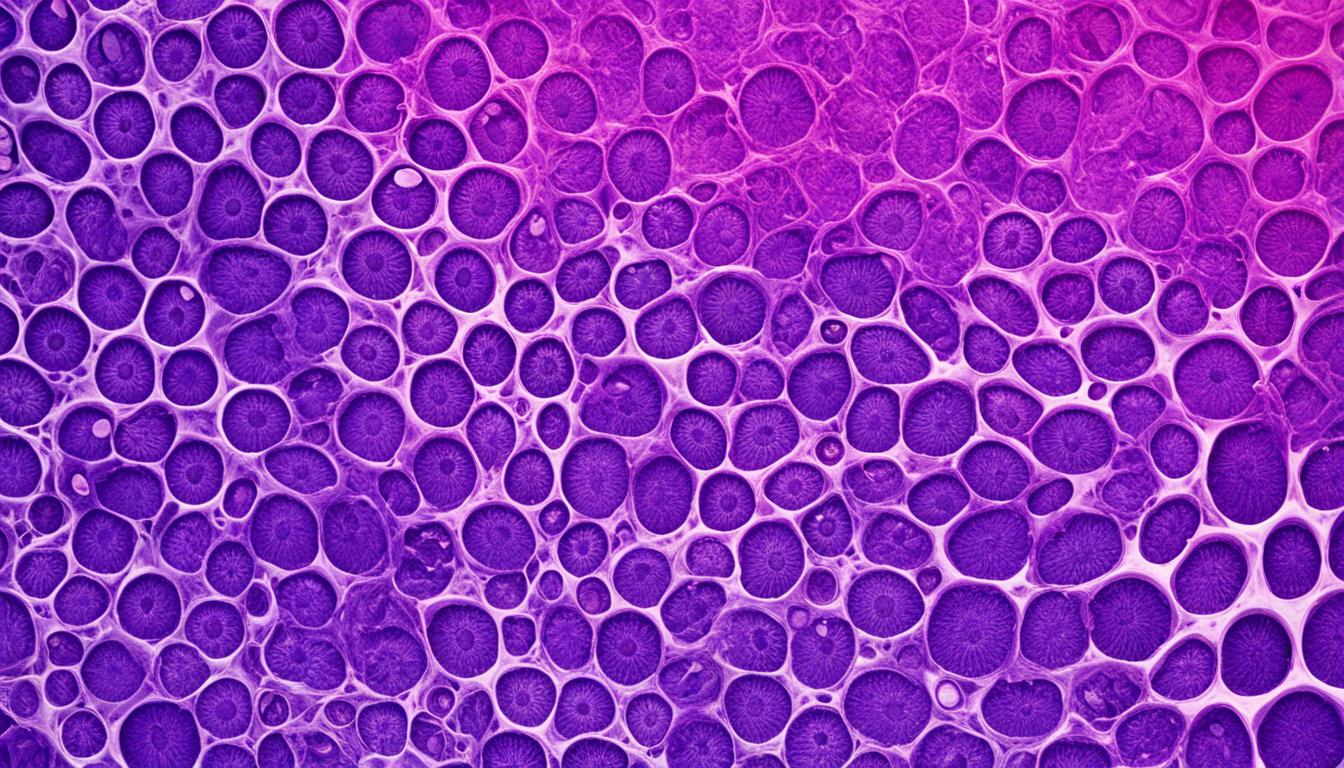Vaginal candidiasis comes from too much yeast in the vagina. About 75 in 100 women might have this issue. For some, the infection can get really serious and be life-threatening.
People with this infection may feel redness, itching, soreness, or pain. It might hurt during sex or when they pee, and their discharge might look unusual. Doctors often diagnose it just by looking at these signs.
They treat it with antifungal creams, pills, or suppositories. For some, stem cell therapy could work too. To prevent this, keeping clean and avoiding things that irritate can help. Also, managing health problems like diabetes and HIV lowers your risk.
Key Takeaways:
- Vaginal yeast infections are caused by an overgrowth of the yeast Candida albicans in the vagina.
- Symptoms include redness, itching, soreness, pain during sexual intercourse or urination, and abnormal vaginal discharge.
- Diagnosis is based on symptoms and may involve a sample from the affected site for testing.
- Treatment options include antifungal medications in the form of creams, suppositories, or oral medication.
- Preventive measures include maintaining good hygiene, avoiding irritants, and managing underlying health conditions.
Risk Factors and Prevention of Vaginal Yeast Infections
Vaginal yeast infections can affect anyone. But, some are more likely to get them than others. It’s important to know what these risks are to help lower your chances. Taking certain steps can help you stay healthy down there.
Vaginal Yeast Infection Risk Factors
Many things can lead to a vaginal yeast infection. Some common reasons include:
- Using antibiotics: They can mess up the natural balance between bacteria and yeast, leading to too much Candida.
- Being pregnant: Hormones change during pregnancy, making a perfect spot for yeast to grow.
- Having uncontrolled diabetes: High blood sugar levels can make conditions right for yeast overgrowth.
- Being overweight: Extra weight can lead to places where moisture gets trapped, favored by yeast.
- A weak immune system: Conditions like HIV/AIDS or autoimmune disorders can mean more yeast infections.
- Having a lot of reproductive hormones: Changes in hormones, like during your cycle, can also foster yeast growth.
- Taking certain medications: Drugs like steroids or chemotherapy can lower your body’s defenses, making yeast infections more likely.
Preventing Vaginal Yeast Infections
You might not fully stop getting yeast infections, but there’s a lot you can do to cut your risks:
- Don’t wear tight, synthetic underwear. They can keep moisture in, perfect for yeast.
- Use mild soaps and moisturizers around your vulva. It keeps everything clean without irritating your skin.
- Make sure to keep your perineum area clean and dry. Too much moisture can help yeast grow.
- Manage your blood sugar well if you have diabetes. High sugar levels can lead to more yeast infections.
- Avoid using perfumed products down there. They can upset the balance of bacteria and yeast in your vagina, leading to more infections.
If you keep getting yeast infections, your doctor might suggest taking antifungal medications regularly to prevent future issues.
Knowing the risk factors and taking preventative steps is key in reducing your chance of getting a yeast infection. It’s important to keep your vagina healthy by practicing good hygiene, avoiding things that irritate, and dealing with any health issues that might spur yeast overgrowth.
Treatment and Outlook for Vaginal Yeast Infections
Vaginal yeast infections can be treated with various antifungal medicines. These include vaginal pessaries and oral pills. Examples are clotrimazole, econazole, fenticonazole, miconazole, teconazole, and fluconazole.
How long treatment lasts depends on how bad the infection is. Mild cases might get better in a week or two. Yet, serious infections need more time. Remember, pregnant women should not take oral anti-fungal drugs. They should look for other options.
Most treatments have few side effects. Always take the medicine as directed. See a doctor if you are worried or something doesn’t feel right.
Sometimes, you might need longer treatment to stop future infections. Working closely with your doctor is key. They will help in finding what works best for you.
In the end, treating vaginal yeast infections is usually successful. For most people, a mild infection can clear up quickly. But, those with weakened immune systems should be careful. Seek your doctor’s advice if needed.

